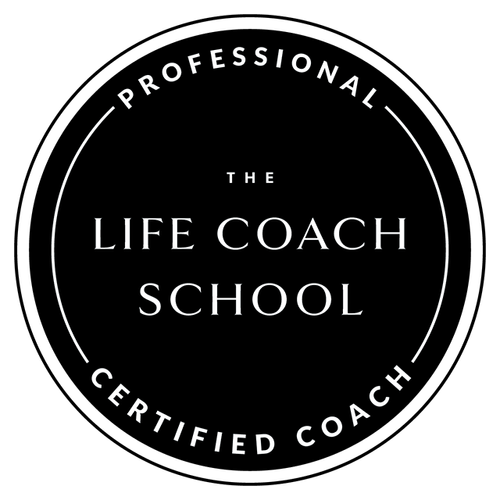Are you feeling stuck in a rut, unsure of how to move forward in your life? Many of us go through phases where we struggle to find our purpose, leading to frustration and a sense of aimlessness. It can be challenging to navigate this feeling, especially when the path ahead seems unclear. You might find yourself questioning your choices, wondering if you’re on the right track, or simply feeling overwhelmed by the demands of daily life. But what if there’s a way to bridge that gap between feeling lost and living with intention?
In this blog, we will explore the search for meaning and purpose, the importance of bridging the gap between where you are and where you want to be, and how to inspire a purposeful life beyond stagnation.
The Search for Meaning and Purpose
Searching for meaning and purpose in life can feel a bit like wandering through a forest without a map. Many people go through times when they wonder if their job, relationships, or everyday activities bring them true happiness. It’s completely normal to have these thoughts, and simply recognizing them is a significant part of the journey. It can be both exciting and a little scary to explore what you really want out of life.
Think about the times when you felt really happy or excited. These moments can give you hints about what’s important to you. Perhaps it was a special project at work that made you proud, a hobby that you lost track of time doing, or a meaningful chat with a friend. Taking some time to jot down these experiences can help you see what truly brings you joy and satisfaction. This reflection can uncover values and interests that may have been overshadowed by your daily responsibilities.
As you start to understand what matters to you, it can be helpful to think about small steps you can take in that direction. For instance, if you discovered that you enjoy painting, consider setting aside a little time each week to paint. These small actions can create a positive change and shift your feelings from being stuck to feeling more connected to your purpose.
The Importance of Bridging the Gap
Recognizing the gap between feeling stuck and living with purpose is a key part of personal growth. When you understand this gap, you begin to see what is preventing you from moving forward in life. This awareness allows you to figure out what needs to change in your life and why those changes matter. It’s like noticing a big wall in your way; if you don’t see it, you might keep walking in circles without knowing why. Acknowledging this gap can often bring clarity to your thoughts and feelings, making it easier to navigate your way through challenges.
Bridging this gap is crucial because it changes how you think about your situation. Imagine running on a treadmill; you’re putting in effort but going nowhere. Identifying the gap is like getting off that treadmill and stepping onto a real path that leads to new possibilities. This shift helps you focus on what really matters to you, sparking your motivation and excitement to pursue your goals. With this newfound clarity, you may find yourself exploring interests and passions that you once ignored or set aside, reigniting a sense of joy in your daily activities.
Moreover, understanding this gap makes it easier to set goals that you can actually achieve. Knowing where you are and where you want to go gives you a clearer view of your journey and what steps to take next. You can break down bigger goals into smaller, more manageable tasks. This way, the path forward feels less daunting and more fulfilling, as you take steps toward what truly matters to you. Each small achievement along the way builds your confidence, helping you feel more capable of tackling bigger challenges as they come.
Inspiring a purposeful life beyond stagnation
Living a purposeful life means breaking free from feelings of stagnation and actively pursuing what brings you joy and fulfillment. This journey involves recognizing where you feel stuck and taking steps to inspire change. Here are some key points to consider:
1. Contribute to Others:
When you start contributing to others, you'll find a renewed sense of purpose that helps you move beyond feeling stuck. Giving back can be as simple as lending a hand to a neighbor or volunteering at a local charity. These acts of kindness create meaningful connections and remind you that you're part of a larger community. Plus, the gratitude and appreciation you receive can be incredibly uplifting.
Imagine you've been feeling lost and directionless. One day, you decide to volunteer at a community garden. As you plant seeds and nurture the plants, you realize you're also planting seeds of change within yourself. You see the garden flourish, and it mirrors your own growth and newfound sense of purpose.
Contributing to others doesn't have to be grand. Small gestures, like offering your skills to a friend or mentoring someone, can make a huge impact. It shifts your focus from your struggles to the positive difference you can make. This shift in perspective not only helps others but also revitalizes your own spirit, making you feel more connected and purposeful in your everyday life.
2. Journaling for Clarity:
After contributing to others, channeling your thoughts and feelings through journaling can further clarify your purpose and lift you out of stagnation. Start by setting aside a few minutes each day to write. This dedicated time helps you process your emotions and thoughts, making it easier to spot patterns and identify what truly matters to you.
Imagine you're navigating a dense forest, and journaling is your map. By writing down your experiences, hopes, and frustrations, you gradually clear a path through the confusion. For instance, jot down moments when you felt most alive or fulfilled. What were you doing? Who were you with? These reflections can reveal underlying passions you might've overlooked.
Consistently journaling also allows you to track progress. Look back at previous entries to see how far you've come, which can be incredibly motivating. Your journal becomes a personal guide, showing you not just where you've been but where you're headed.
3. Take Calculated Risks:
Taking calculated risks can propel you from a state of stagnation to a life filled with purpose and excitement. When you're feeling stuck, it's often because you're trapped in a cycle of comfort and predictability. To break free, you need to step outside your comfort zone in a thoughtful and strategic way.
Start by identifying an area of your life where you feel stagnant. Maybe it's your career, relationships, or personal growth. Once you've pinpointed the area, brainstorm a few bold but achievable actions you can take.
For instance, if you're feeling unfulfilled at work, consider taking a course to learn a new skill or applying for a role in a different department. These actions may seem risky, but they're calculated risks because you've weighed the potential benefits against the possible downsides. Next, create a plan. Outline the steps you'll take and set a timeline for each one. This will help you stay focused and motivated.
4. Limit Negative Influences:
To create a more purposeful life and overcome feelings of stagnation, it’s crucial to limit the negative influences around you. Begin by examining your relationships; if certain people drain your energy or undermine your confidence, it’s important to set boundaries or distance yourself. Surround yourself with supportive individuals who uplift you.
Next, assess your environment. A cluttered workspace can lead to a cluttered mind, so take time to organize and create an inspiring space that encourages focus and creativity. Small changes, like adding plants or rearranging furniture, can make a big difference.
Lastly, evaluate your habits. If you engage in negative self-talk or procrastination, work on replacing these behaviors with positive affirmations and tackle tasks step by step. By making these adjustments, you can foster a more positive and motivating atmosphere that helps you move forward.
5. Develop Healthy Routines:
Establishing healthy routines is essential for creating a purposeful life and moving beyond feelings of stagnation. By forming consistent daily habits, you lay a strong foundation that supports your goals and dreams.
Begin with small steps, such as incorporating a morning ritual that includes stretching, meditation, or journaling. These simple activities can set a positive tone for your day and help you feel more centered.
Next, focus on your physical health. Regular exercise, balanced nutrition, and adequate sleep are vital for both your body and mind. Imagine starting your day with a brisk walk or yoga session; these activities can energize you and enhance mental clarity. Remember, the key is consistency rather than striving for perfection.
6. Attend Workshops and Retreats:
Attending workshops and retreats can be a powerful way to reignite your passion and gain new perspectives on life. These experiences allow you to step away from your daily routine and encounter fresh ideas that inspire you. Whether it’s a mindfulness retreat or a creative writing workshop, these events provide an opportunity to explore your interests and connect with like-minded people.
Imagine participating in a personal growth retreat where you engage in guided meditation and group discussions that help you reflect on your goals. Such experiences can reveal hidden passions and clarify your life’s purpose, all while boosting your motivation in a supportive environment.
Workshops focus on developing specific skills, like leadership techniques that can enhance your professional life. The key is to choose workshops and retreats that align with your interests, offering valuable tools and insights to help you move forward with renewed purpose.
7. Volunteer for a Cause:
Stepping out of your comfort zone and engaging in workshops can be incredibly enlightening, but another powerful way to break free from feeling stuck is by volunteering for a cause you deeply care about. When you dedicate your time and energy to helping others, you not only make a tangible impact but also find a renewed sense of purpose.
Imagine spending your weekends at a local animal shelter. Feeding, cleaning, and playing with the animals could offer a refreshing change from your daily routine. You'll meet like-minded people, share stories, and learn new skills. More importantly, you'll feel a deep sense of fulfillment knowing your efforts contribute to the well-being of those animals.
Volunteering doesn't just benefit the cause — it benefits you, too. It shifts your focus outward, reducing the time you spend dwelling on your own frustrations. You'll gain perspective, realizing your strengths and how they can be used for the greater good. This newfound clarity can help you realign your personal goals and reignite your passion for life.
Conclusion
Transitioning from feeling stuck to living with purpose is a journey that involves recognizing where you are and taking actionable steps toward what truly matters to you. By contributing to others, journaling your thoughts, taking calculated risks, and fostering positive routines, you can create a fulfilling life. Surrounding yourself with supportive people and exploring new opportunities can also play a crucial role in this transformation. Remember, it’s about making small changes consistently that lead to meaningful progress. You have the power to shape your path, rediscover joy, and find your unique sense of purpose.
FAQs
1. How can I cope with setbacks while pursuing my purpose?
Coping with setbacks involves reframing them as learning opportunities rather than failures. Foster resilience by analyzing what went wrong, adjusting your approach, and maintaining a flexible mindset that allows for growth and adaptation.
2. How do I create an inspiring environment for personal growth?
An inspiring environment can be achieved by decluttering your space, adding elements that reflect your interests, and surrounding yourself with motivational quotes or visuals. Consider incorporating natural light and personal touches that spark joy and creativity.
3. How can I integrate purpose into my daily routine?
Integrating purpose into your daily routine can be done by setting aside time for activities that align with your passions, whether through hobbies or volunteer work. Small, intentional actions, like expressing gratitude or helping others, can reinforce a sense of purpose throughout your day.








